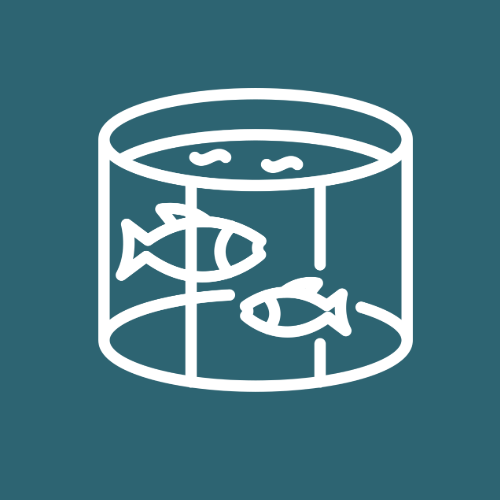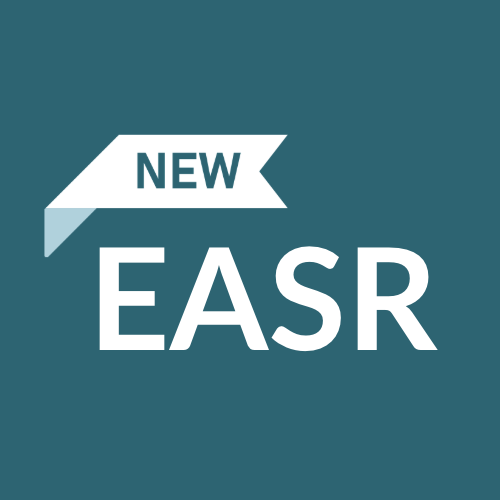Featured consultations
-
Experience and perceptions of engaging with SEPA: public, communities and stakeholder survey
We appreciate your interest and value your time in taking part in this research. We are seeking your views and experience of contacting and engaging with our services so we can be customer focused, accessible and inclusive to all we engage and work with, and those who need to use our services. The feedback from this survey will shape how we work with people, communities and organisations across Scotland, including the development of our customer service, accessibility strategy, and...
Closes 31 January 2026
-
Safeguarding Scotland’s Water Environment
Scotland’s water environment is one of our most valuable natural assets. It supports wildlife, contributes to health and wellbeing, and underpins sustainable economic growth. This environment sits within a complex landscape of towns, cities, farmland, forests, and industry. Protecting and improving this resource is essential to building resilience to climate change and ensuring the needs of people, nature, and the economy are met for the future. We have published...
Closes 3 March 2026
Permitting applications
Finfish aquaculture: Advertised applications under the Water Environment (Controlled Activities) (Scotland) Regulations 2011
Advertised applications under the Water Environment (Controlled Activities) (Scotland) Regulations 2011
Open consultations
-
Experience and perceptions of engaging with SEPA: public, communities and stakeholder survey
We appreciate your interest and value your time in taking part in this research. We are seeking your views and experience of contacting and engaging with our services so we can be customer focused, accessible and inclusive to all we engage and work with, and those who need to use our services. The feedback from this survey will shape how we work with people, communities and organisations across...
Closes 31 January 2026
-
PPC/A/1013495 - Shell UK Limited: Mossmorran Fractionation Plant, Cowdenbeath - PPC Variation Application
It's part of SEPA’s remit to maintain a high-quality environment by setting permit conditions which limit the impacts associated with installations operating under Pollution Prevention and Control (PPC) Part A regulations. Application details We received an application from Shell UK Limited to vary their existing PPC permit PPC/A/1013495 at Fife NGL Plant, P.O....
Closes 3 February 2026
-
PPC/A/5011690 - Woodend Farming Partnership: Woodend Farm, Duns - PPC Permit Application
It's part of SEPA’s remit to maintain a high-quality environment by setting permit conditions which limit the impacts associated with installations operating under Pollution Prevention and Control (PPC) Part A regulations. Application details We received an application from Woodend Farming Partnership for a permit to operate an installation at Woodend Farm,...
Closes 10 February 2026
-
PPC/A/5011623: W D Stephen & Co: Meikle Geddes Farm, Nairn - PPC Permit Application
It's part of SEPA’s remit to maintain a high-quality environment by setting permit conditions which limit the impacts associated with installations operating under Pollution Prevention and Control (PPC) Part A regulations. Application details We received an application from W.D. Stephen & Co. for a permit to operate an installation at Meikle Geddes (Free Range Egg...
Closes 11 February 2026
-
PPC/A/5012043 - Sypland Glen Eggs Limited: Sypland Glen Free Range Egg Farm, Kirkcudbright - PPC Permit Application
It's part of SEPA’s remit to maintain a high-quality environment by setting permit conditions which limit the impacts associated with installations operating under Pollution Prevention and Control (PPC) Part A regulations. Application details We received an application from Sypland Glen Eggs Limited for a permit to operate an installation at Sypland Glen...
Closes 13 February 2026
Closed consultations
-
PPC/A/5009808 - Aberdeen City Council: Energy Centre: The Event Complex, Aberdeen, Bucksburn, AB21 9TF - Permit Application
It's part of SEPA’s remit to maintain a high-quality environment by setting permit conditions which limit the impacts associated with installations operating under Pollution Prevention and Control (PPC) Part A regulations. Application details We received an...
Closed 15 January 2026
-
Draft decision consultation EAS/P/6000001VAR02 - The Caledonian Cheese Company Limited: The Creamery, Stranraer
Anyone who carries out an industrial activity under Schedule 20 of The Environmental Authorisations (Scotland) Regulations 2018 (EASR) must have an authorisation from SEPA. When we receive an application for a new industrial activity or to modify an existing industrial activity, as part of our...
Closed 13 January 2026
-
Call for Evidence : Non Waste Anaerobic Digestion over 100 tonnes per day: Permit technical requirements
This is a call for evidence on the proposed technical requirements for plant carrying out non- waste anaerobic digestion (AD) over 100 tonnes per day. As an evidence-led organisation SEPA is keen to ensure that operators have the opportunity to provide detailed information via this call for...
Closed 9 January 2026
-
PPC/A/5009003 - Sodra Wood Ltd: Shed 36, Stannergate Road, Dundee - PPC Permit Application
It's part of SEPA’s remit to maintain a high-quality environment by setting permit conditions which limit the impacts associated with installations operating under Pollution Prevention and Control (PPC) Part A regulations. Application details We received an...
Closed 7 January 2026
-
PPC/A/1018364 - Mersen UK Holytown Limited: 11 Woodside, Eurocentral - PPC Variation Application
It's part of SEPA’s remit to maintain a high-quality environment by setting permit conditions which limit the impacts associated with installations operating under Pollution Prevention and Control (PPC) Part A regulations. Application details We received an...
Closed 31 December 2025
We Asked, You Said, We Did
Here are some of the issues we have consulted on and their outcomes. See all outcomes
We asked
For your views on our proposed Environmental Performance Assessment Scheme (EPAS), which will provide a consistent way to assess environmental performance and support improvements in compliance.
You said
We received 73 responses. Most respondents understood and supported the proposals, including the principles of the scheme.
We did
We considered your feedback carefully and made several changes to strengthen and clarify the scheme. Our 'we asked, you said, we did' document summarises what you told us and the actions we’ve taken. Where permission to publish has been provided, the indvidual consultation responses are now available to view online.
We asked
In January 2025 your views on proposed changes to enhance the opportunities for public participation and review SEPA’s Fit and Proper person test in line with the Environmental Authorisations (Scotland) Regulations 2018.
In the consultation we wanted to gather views on:
1. Proposed changes to the SEPA guidance on public participation by adding a requirement for prospective applicants to engage in public consultation at the pre-application stage in the Public Participation Statement.
2. Proposed changes to the SEPA guidance on the criteria we will apply in determining whether a person is a fit and proper person to hold a registration or permit (‘Guidance On Who Can Hold an Authorisation: ‘In Control’ and ‘Fit and Proper Person’ Tests’).
The consultation was open from 6 January 2025 to 31 March 2025.
You said
In total, we received 55 responses to this consultation.
Overall the response to both questions was positive and in favour of the changes proposed.
Responses agreed with adding pre-application engagement to some permit applications and provided suggestions as to how best an applicant could fulfil this requirement.
On the Fit and Proper person test, responses agreed with changes around asking applicants for non environmental convictions
We did
We carefully considered your feedback and made several changes to our guidance on public participation and the fit and proper person test.
The updated ‘Public Participation Statement’ and our guidance ‘On Who Can Hold an Authorisation: In Control and Fit and Proper Person are now available’.
We published a summary of these changes in our Consultation Digest (July 2025).
We asked
For your views on changes to SEPA charges for the marine fish farm sector to recover the costs of environmental monitoring to investigate the interaction between sea lice from marine fish farms and wild salmon and sea trout.
You said
We received 12 responses to the consultation. Respondents from the fish farming sector recognised that it was appropriate, in principle, for SEPA to recover the costs of sea lice-related monitoring from fish farm operators. They had several concerns about the details of the proposals and told us it was important that charges paid by fish farmers were exclusively for recovering the costs of monitoring sea lice interactions with wild fish (i.e. not other pressures); the monitoring must be more effective than existing monitoring; and, to avoid duplication and unnecessary costs, the monitoring must replace planning permission monitoring requirements. Most respondents from organisations involved in the conservation and management of wild salmon and sea trout told us that they supported the changes in charges and considered that the proposed monitoring programmes would be a significant improvement in how sea lice/wild salmon and sea trout interactions are monitored.
We did
We considered your feedback carefully. We agree with many of the points raised, including that the costs recovered are exclusively the costs of investigating pressure from sea lice from fish farms; the monitoring being carried out under planning permissions should be superseded; monitoring must be scientifically designed to best provide the evidence required; and advice from stakeholder advisory groups should be sought and considered in planning the monitoring for 2026 and beyond, reviewing results and adapting monitoring as appropriate. For points that we have not taken forward, we have explained why we consider the approach we proposed to be more appropriate. You can find information about our consideration of each of the points raised in our Consultation Digest.




